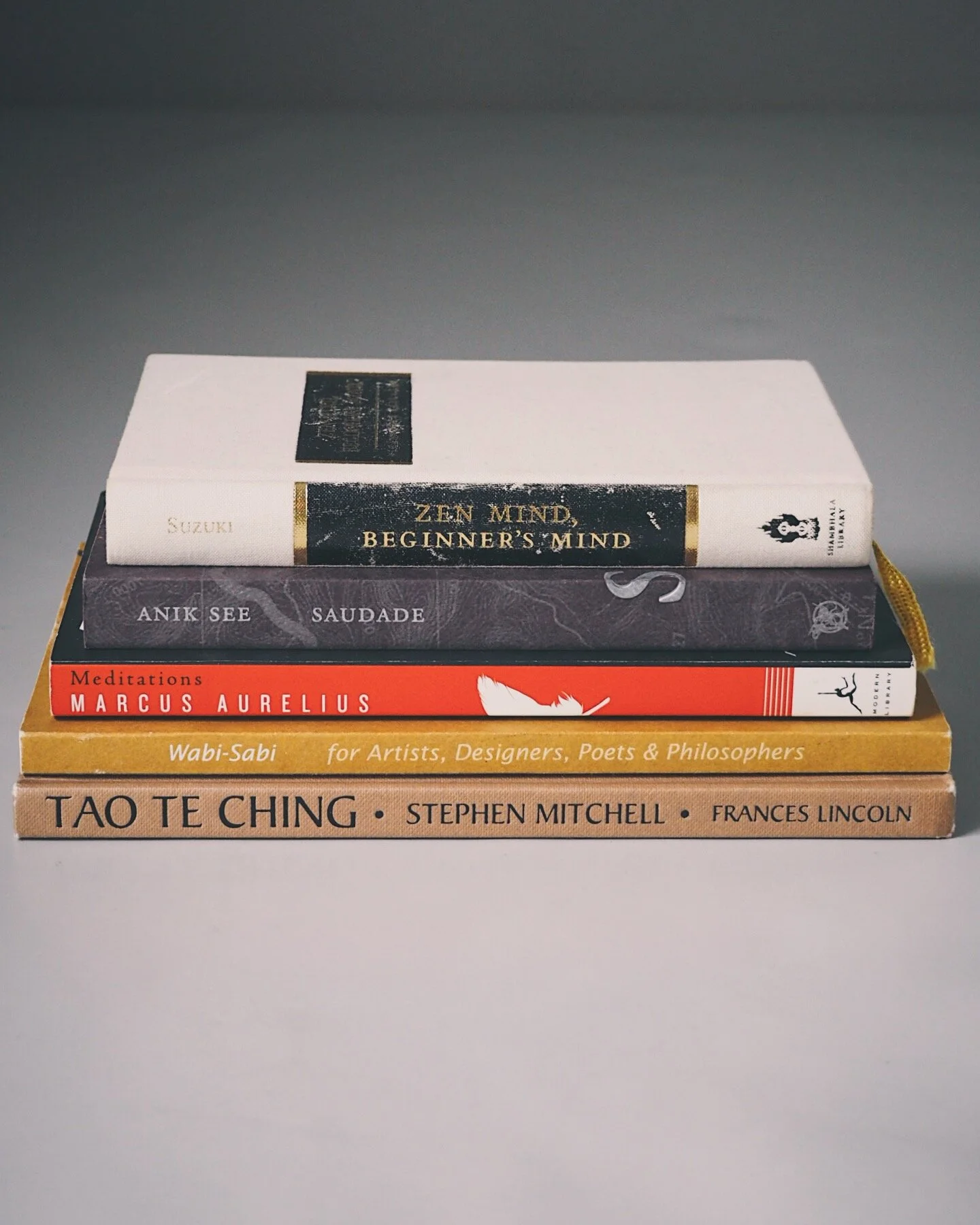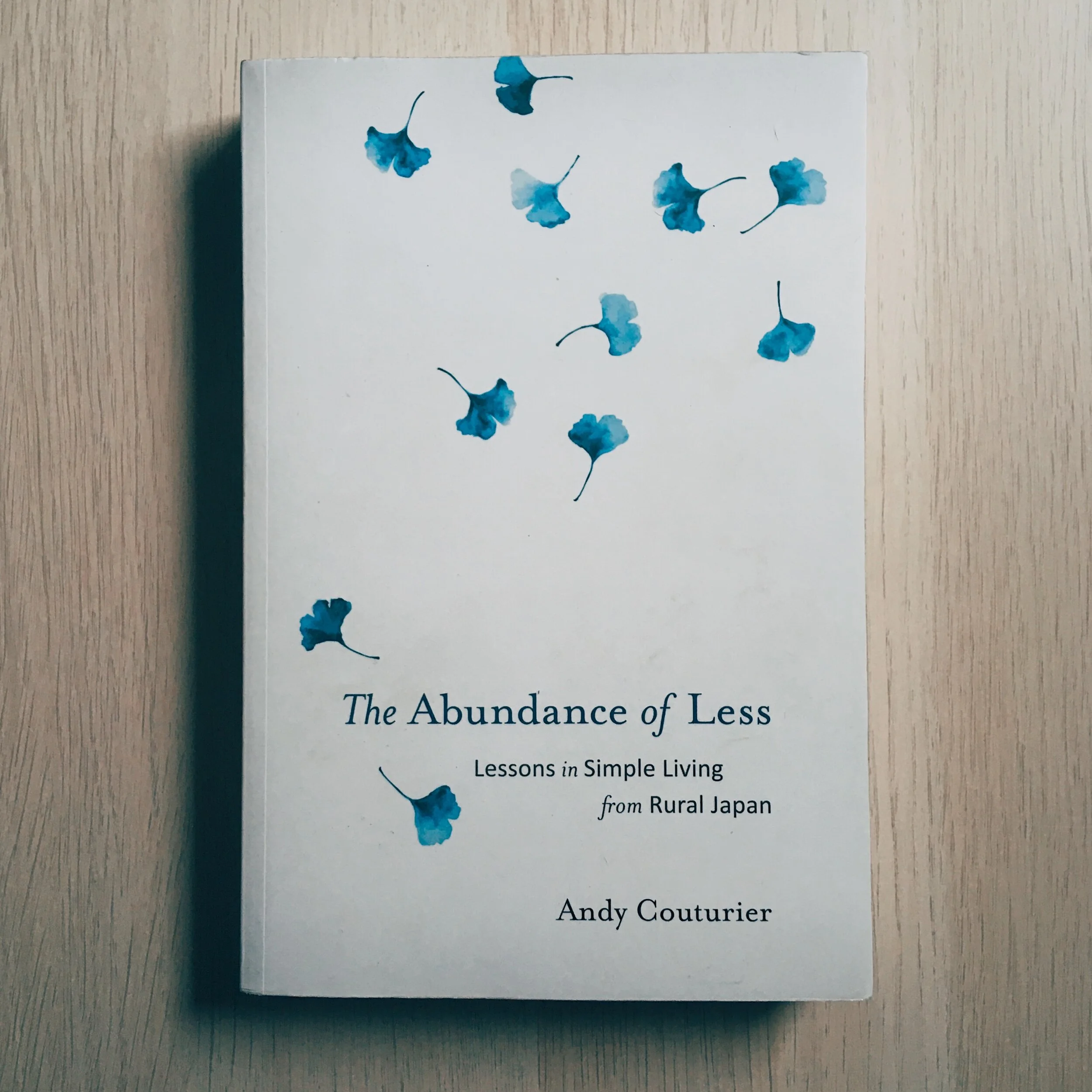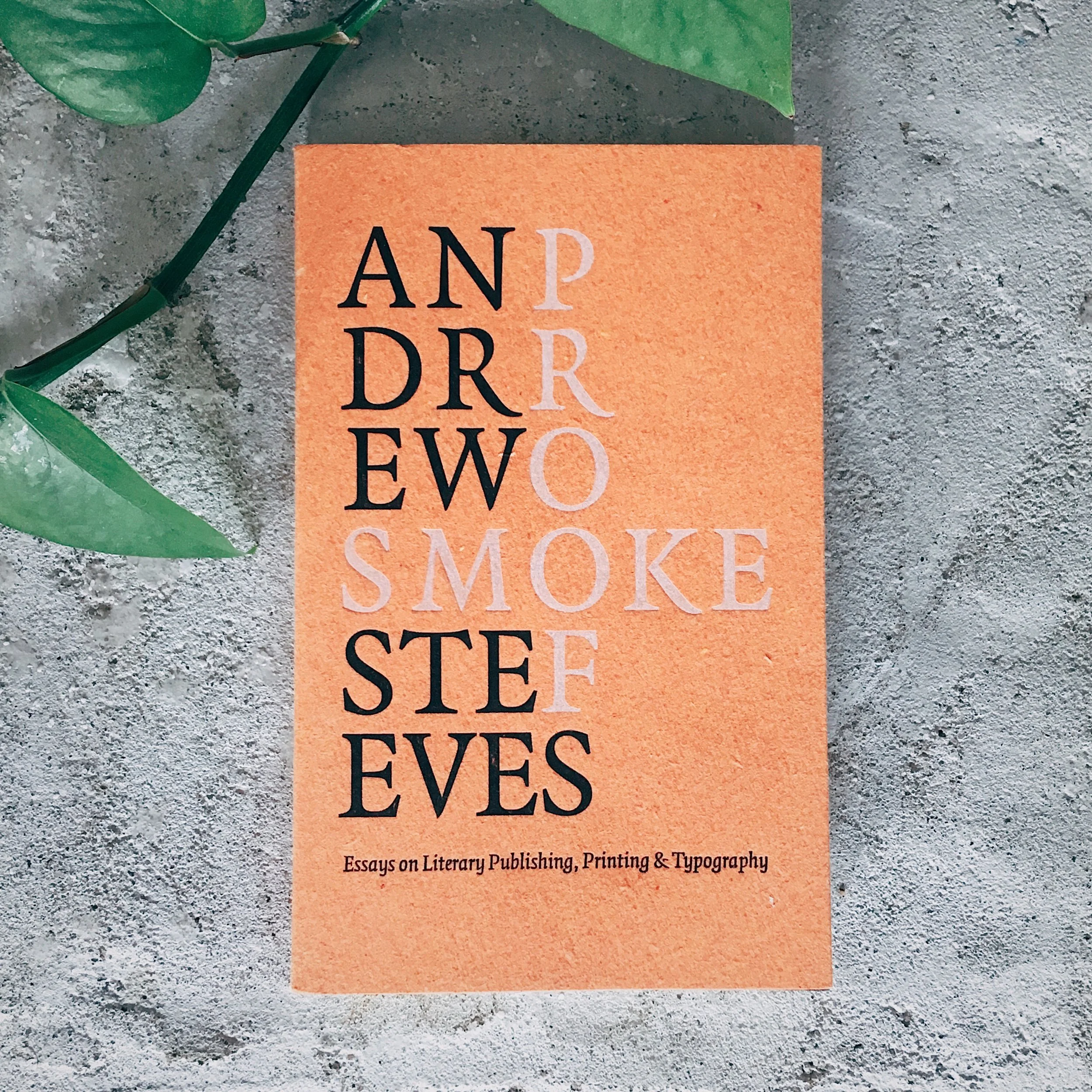Running with the mind of meditation means taking an attitude that our experience is worthy of our attention, without comparison to other events. You develop an awareness where you feel your internal environment (your rhythm, the pounding of your heart, your feet hitting the ground) at the same time as you tune into your external environment (the sky, the air, the sounds of life). By learning to appreciate and enjoy our mind, you can no longer split spirituality and everyday life.
Read MoreArticles & Ideas
I write about designing and living an intentional life. I strongly believe in putting things into practice and sharing my process along the way.
Browse by category
Articles & Essays, Architecture & Design, Book Summaries, Conferences, Films & Interviews, or View All
I’ve decided to create "Five Books for a Lifetime" as a way to wrap up the year and answer the following questions: What books do you give as a gift most often? Why would you ever want to own a book? Have you ever reread a book? Each one of these books I’ve read from cover-to-cover at least three times. They sit on my desk at home and I frequently reread sections or reference them when I need a piece of wisdom. In this article I give a concise summary of each of the five books that made me, followed by the reason why I chose them.
Read MorePresented as a collection of ten stories of life in rural Japan, this book encompasses a wealth of knowledge that Andy Couturier collected from elders and translated over the course of fifteen years. Instead of a typical interview format, each chapter is framed as a dialogue where the author places himself in the narrative as if he is being mentored. While themes are wide-ranging, they can best be summarized by five points: Gentle, Small, Humble, Slow, and Simple.
Read MoreI find Murakami’s short stories to be frustrating compared to his other, longer works. What makes his novels so wonderful is the slow development of each character and the many fantastical environments. Murakami makes the unbelievable appear believable through the careful construction of rules; you become invested in the story, little by little.
Read MoreIn this complex pairing of intertwined stories, Murakami takes us to another world as he examines what it means to live a meaningful life. Scattered with intentional ambiguities, the book operates in contrasts — ordinary/sublime, conscious/subconscious, perfect/imperfect — nothing is ever equal. You could choose to live an unexamined life, content and oblivious, but the delight of this book is investigating each metaphor and pausing to reflect.
Read MoreThrough concepts like ilira (the Inuit word for a sense of fear and awe, as subjective experience), Macfarlane explores the landscapes of forests and rivers, caverns and caves, and oceans and ice. Underland is a compilation of personal journeys into dark places where local guides share their knowledge about a specific place. While you may find yourself drawn to particular chapters, Macfarlane seeks to identify patterns and make connections to enrich how people might move and think together across landscapes.
Read MoreWriting and running marathons are very much alike: a writer has a quiet, inner motivation, and doesn’t seek validation in the outwardly visible. Exerting yourself to the fullest, within your individual limits, is the essence of running and a metaphor for life. Murakami shares the lessons he has learned in life, and how he releases them as a part of the storyline in a novel.
Read MoreAn autobiography chalked full of lessons and meaning if you’re open and willing. As a former professional swimmer, Rich Roll had a head start on making an athletic comeback, yet he had to challenge his way of living to overcome alcohol and unhappiness. This book will hit the mark for those willing to make a change in their life, diet, and question everything; but runs the risk of sounding inauthentic to anyone with a closed mindset.
Read MoreThe illusion of infinite time clouds our understanding of the preciousness of one another. We plan for most everything in life, and yet death usually catches us by surprise. You are the only one who can survey the magnitude of your loss: no one will ever know the meaning of what was shared or the deepness of the void that shadows your future.
Read MoreCreative nonfiction is not making something up but making the most of what you have. When moving from your first draft to your fourth, expect a 4:1 ratio of writing time (i.e. if the first draft takes 2 years, then the combined second, third, and fourth drafts will take 6 months). Nobody writes like you, therefore a good editor’s goal is to help writers make the most of the patterns that are unique about them.
Read MoreEpstein argues creative achievers tend to have broad interests in adjacent domains and take expertise accrued in one area and apply it to a completely new one (innovation). Instead of working backward from a goal, work forward from promising situations, reflect, and adjust your personal narrative. By struggling to generate an answer on your own — even a wrong one — you significantly enhance long-term learning.
Read MoreThinking in terms of probability rather than “yes” or “no” triggers a more open-minded exploration of alternative hypothesis, making us more likely to explore the opposite side of an argument more often and more seriously. The people with the most legitimate claim to a bulletproof self-narrative have developed habits around accurate self critique. Sharing your uncertainty with others invites collaboration in the same way scientists share their experiment methodology.
Read MoreIn the era of smartphones and pocket-sized screens, we post and comment to feel less alone and reassure ourselves that we are quantifiable. A culture of self-tracking has emerged and turned formerly solitary moments into an online commentary. While algorithmically defined notions of your own taste might feel personal, you need to be exposed to challenging new ideas and content to grow.
Read More“Difficulty is always a school, though learning is optional.” Empathy means that you travel out of yourself a little or expand: you can be a thousand miles from the person next to you in bed or deeply invested in the survival of a stranger on the other side of the world. Chronic pain can be treatable by training people to experience it differently, but the sufferer has to be willing to give up their story, a familiar version of themselves.
Read MoreThere are infinite ways to cross a landscape and the function of a path is to reduce this teeming chaos into an intelligible line. Our many forms of understanding of the world resemble nothing so much as the trail-wise problem-solving of ants: we test multiple theories against the complexity of the world, and then pursue those that work. The better routes last, the worse ones erode, and little by little those that work improve.
Read MoreClutter is costly: commit to being more intentional, think about how you’ll use technology, and understand if the benefits outweigh the negatives. If you prioritize demanding activity over passive consumption, use your skills to produce valuable things in the physical world, and seek activities that require structured interaction, you’ll find yourself with fresh ideas and a stronger connection to those you care about. The key to sustained success with a Digital Minimalist philosophy is accepting that it’s more about the quality of your life, not the technology.
Read MoreAndrew Steeves argues we should demand more of the books we purchase. The quality of a book can be a difficult thing to define in quantitative terms because most books are constructed from the same materials and principles. A page layout that soars in one instance may just as easily sour in another; what separates good design from bad is that it cannot be achieved by the simple means of prescription.
Read MoreYou don’t need a rarified job, you need a rarified approach to your work. The ability to concentrate intensely is a skill that must be trained; creative insight in professional life is about making a commitment to training this ability every single day. To make the most out of your deep work sessions focus on only a few important goals, build strict rituals, and implement a fixed-schedule to determine what rules and habits are needed to satisfy your constraint.
Read MoreDon’t make the mistake of thinking big, looking for a world-changing mission without the career capital to back it up or you’ll get stuck making little progress. If you just show up and work hard, you’ll soon hit a performance plateau and fail to get any better. Developing work you love means patiently building ‘Career Capital’ (rare and valuable skills) towards a tentative mission through deliberate practice.
Read MoreWe spend our lives lost in thought, not knowing what is actually happening in the present moment. Meditating is not merely thinking with their eyes closed, it is a skill that takes training to distinguish between being lost in thought and seeing thoughts for what they are. During the normal course of life your mind will determine the quality of your life; changing your perception of the world is often as good as changing the world itself.
Read More



















